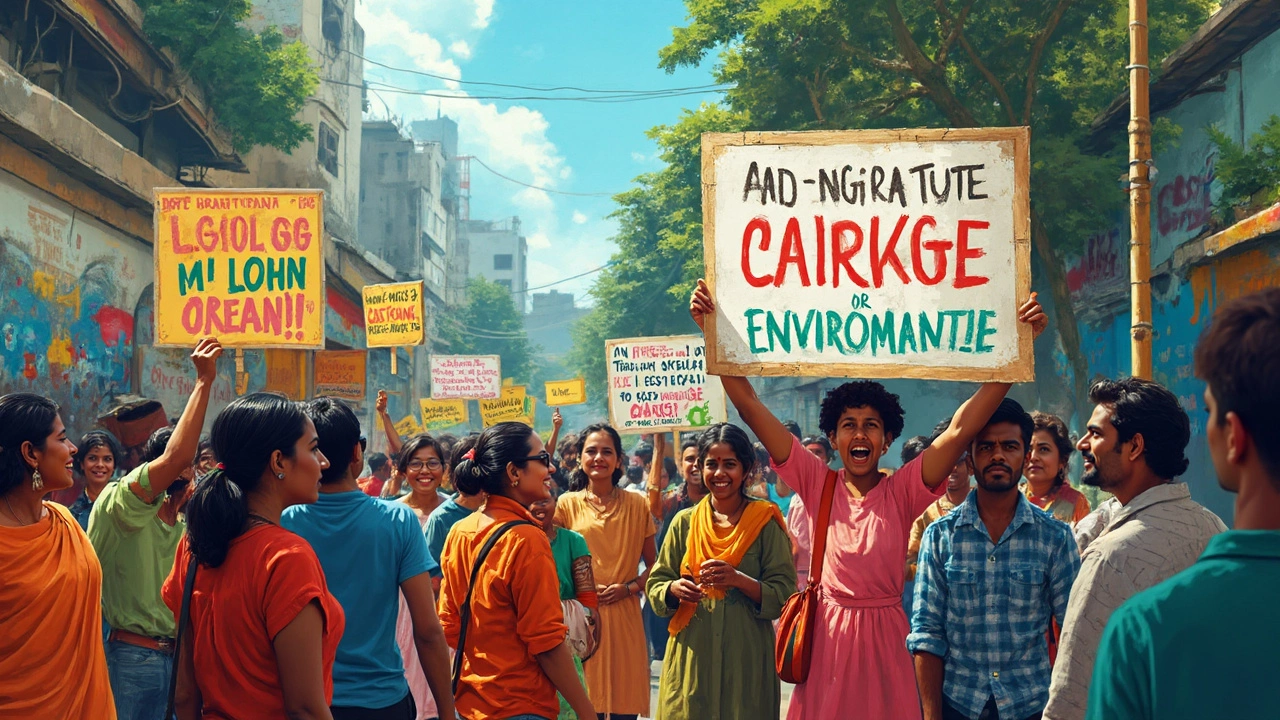Types of Environmental Groups You Can Join Today
If you care about the planet but feel overwhelmed by the sheer number of organisations out there, you’re not alone. The good news is that most groups focus on a specific piece of the puzzle – wildlife, climate policy, local clean‑ups, you name it. Knowing the main categories helps you pick a group that matches your interests, skills, and the impact you want to make.
Conservation and Wildlife Protection Groups
These groups put the spotlight on preserving habitats and safeguarding species. Their work ranges from fundraising to buy land for nature reserves, to running anti‑poaching patrols, to conducting scientific surveys. If you love animals, hiking, or photography, you’ll feel right at home here. Volunteer tasks often involve field work – planting native trees, monitoring bird nests, or helping with community education about local wildlife. Big names you might have heard of include the Wildlife Trusts, WWF India, and regional forest‑friend societies.
Climate Action and Policy Advocacy Groups
While conservation groups protect the present, climate groups aim to shape the future by influencing policy, pushing for renewable energy, and holding polluters accountable. Their tactics are a mix of research, lobbying, public campaigns, and grassroots rallies. If you enjoy debating, writing, or organising events, this is a great fit. you can sign petitions, help draft policy briefs, or coordinate climate‑justice marches. Notable examples are the Centre for Science and Environment, the Climate Action Network India, and youth‑led movements like Fridays for Future India.
Beyond these two big buckets, many organisations blend both approaches or focus on narrower niches. Some groups specialise in marine conservation, working to clean up beaches and protect coral reefs. Others concentrate on sustainable agriculture, helping farmers switch to organic practices that keep soil healthy and reduce emissions. If urban living is your world, look for city‑based sustainability clubs that run bike‑share programs, community gardens, or zero‑waste workshops.
When you’re scouting for a group, start with three simple questions: What issue fires you up the most? How much time can you realistically give? Do you prefer hands‑on field work or desk‑based research and advocacy? Answering these will narrow down the list quickly.
Websites like HelpCharitableTrust.in let you filter groups by focus area, region, and volunteer opportunities. You can also check out social media pages or local meetup groups – many NGOs post upcoming events and volunteer calls there. Don’t forget to read reviews or talk to current members; a good fit feels supportive and clear about expectations.
Once you’ve chosen a group, commit to a small, doable task first. It could be a one‑day beach clean‑up, drafting a social‑media post, or attending a policy briefing. Small wins build confidence and show the organisation you’re reliable. Over time, you can take on bigger roles like leading a project or mentoring new volunteers.
Remember, impact isn’t measured only by the size of the organisation. A tiny community group that cleans a local river every month can achieve more tangible results for nearby residents than a giant global NGO whose projects are spread thin. Choose the scale that feels right for you.
Ready to get started? Grab a notebook, pick the type of group that matches your passion, and reach out today. The planet needs your energy – the right group will help you channel it into real change. Happy volunteering!
How Many Types of Environmental Groups Exist?
Environmental groups go beyond tree-hugging stereotypes. They vary from grassroots activists to large nonprofit corporations, each with a unique mission. Some focus on preserving wildlife, while others push for legislation change or clean energy solutions. Understanding these different groups can help you find where your passion fits in.
Read More